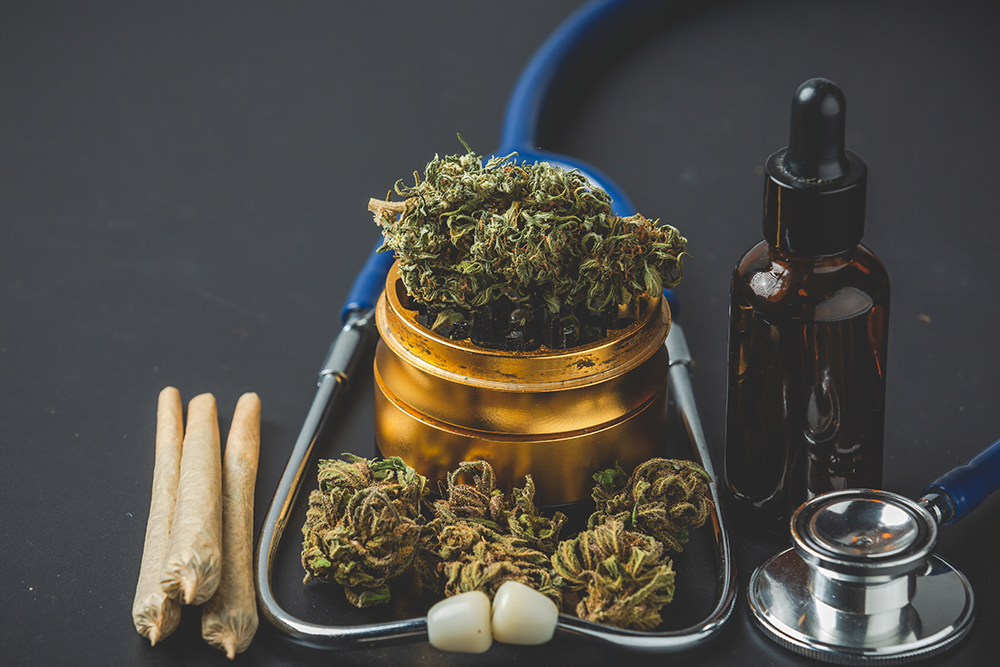Cannabis, also known as marijuana, has gained widespread attention in recent years due to its legalization in various countries and its medicinal applications. While the potential benefits of cannabis are often highlighted, it is equally important to examine the risks associated with its use. This article explores the dangers of cannabis consumption, offering a balanced, evidence-based perspective to promote informed decision-making. 
What Is Cannabis?
Before diving into the risks, it’s crucial to understand what cannabis is. Cannabis is a plant that contains numerous chemical compounds, including THC (tetrahydrocannabinol), its main psychoactive component, and CBD (cannabidiol), known for non-psychoactive therapeutic properties. Common products derived from cannabis include marijuana (the dried flowers), hashish (compressed resin), and hash oil (a potent extract).
Short-Term Risks of Cannabis Consumption
Cannabis use can have immediate effects on the body and mind, some of which may pose significant risks:
1. Psychological Alterations
Cannabis can induce euphoria and relaxation, but it may also trigger paranoia, anxiety, or even hallucinations, especially in inexperienced users or those consuming high-potency products.
2. Impaired Memory
The ability to recall recent events or learn new information can be temporarily diminished due to the impact of THC on the brain’s memory-processing regions.
3. Poor Coordination
Motor skills and reaction times are affected by THC, increasing the risk of accidents, particularly if the individual drives or operates machinery shortly after consumption.
Long-Term Risks of Cannabis Use
The risks of regular or prolonged cannabis consumption are more concerning and can have lasting effects on physical and mental health:
1. Dependence and Addiction
Contrary to popular belief, cannabis can lead to dependency. Approximately 9% of users develop a cannabis use disorder, with higher risks among adolescents and heavy users.
2. Respiratory Issues
Smoking cannabis can irritate the lungs, leading to chronic bronchitis and other respiratory problems. While vaping is often seen as a safer alternative, it is not entirely risk-free.
3. Mental Health Disorders
Frequent use of cannabis has been linked to a heightened risk of developing conditions such as schizophrenia, depression, and anxiety, particularly in individuals with a genetic predisposition or a history of mental illness.
4. Cognitive Impairments
Persistent cannabis use can impact cognitive functions, including memory, attention span, and problem-solving abilities, potentially affecting academic or professional performance.
The Unique Risks for Young People
Young people face increased vulnerability to the adverse effects of cannabis because their brains are still developing.
- Developmental Impact: Cannabis use during adolescence can disrupt brain development, potentially leading to long-term impairments in memory, decision-making, and emotional regulation.
- Higher Dependency Rates: Adolescents who use cannabis are more likely to develop dependency compared to adults.
Educating young individuals about these risks and fostering open dialogue is essential for prevention and harm reduction.
Are There Benefits to Cannabis? A Balanced View
Despite the risks, cannabis also offers potential therapeutic benefits under medical supervision. Studies have shown its effectiveness in:
- Relieving chronic pain and inflammation.
- Reducing muscle spasms in conditions like multiple sclerosis.
- Alleviating symptoms of anxiety and PTSD.
- Addressing chemotherapy-related nausea and loss of appetite.
However, medicinal use should be carefully guided by a healthcare professional to minimize risks and ensure proper dosage and delivery methods.
Key Takeaways
Cannabis is a substance that, like many others, has both potential benefits and risks. It is vital to approach its use responsibly and with a clear understanding of its effects.
- Educate Yourself: Knowledge is the first step toward making informed decisions.
- Moderation Is Key: Avoid excessive or frequent use to reduce the likelihood of adverse effects.
- Seek Guidance: Consult a medical professional, particularly if using cannabis for therapeutic purposes.
Your Health Matters
If you or someone you know uses cannabis, it is important to stay informed, monitor for any negative side effects, and seek medical advice if needed. Health and well-being should always come first. For further information, or if you’re interested in joining our community, contact us today.

